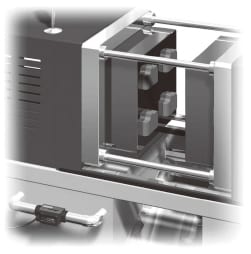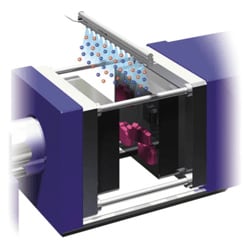Automotive Industry
Resin Parts Remaining in Mold
Molded parts sometimes stick to and remain in the mold due to the electrostatic charge generated by friction with the mold. Due to miniaturization and thinner designs, molded parts are lighter and stick more easily. As the shape becomes more complicated, the friction surface with the mold increases and the parts become charged more easily. Furthermore, high-speed molding machines cause friction at higher speeds, resulting in larger electrostatic charges and greater risk of parts remaining in molds.

Conventional countermeasures
Handled by workers
- Disposal cost of defective products
- Cost increase due to increased labor cost
Countermeasures with static eliminators (ionizers)
Costs can be reduced.

Improvements and Effects
Words from the worksite
Reduced disposal cost and labor cost required for disposal
Disposal cost of parts remaining in molds: $1,000/month x 12 months = $12,000/year
Labor cost per line: $200/month x 12 months = $2,400/year






